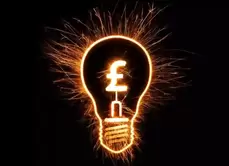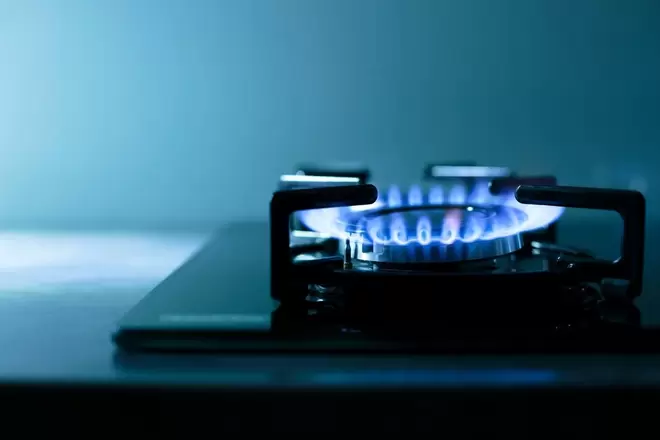Why is my electricity bill so high?
Save £££ on your energy bills |
|
You may already know the classic ways to lower your energy bills – from using a blanket rather than the thermostat, or blocking window draughts.
But you may be surprised to discover the “innocent” appliances and habits that are among the chief reasons behind your high energy bills. Even worse, your supplier may make a mistake – such as sending you an incorrect bill - that if left unnoticed could cost you £100s. With energy one of the biggest drains on household income, you can’t afford not to pay attention to your gas and electricity bills. That’s why we’ve highlighted these five common culprits of high electricity/gas bills, along with tips on how to solve them. Of course, the best way to cut your bills is to switch to a cheaper gas and electricity deal. HOW MUCH CAN YOU SAVE ON YOUR ENERGY BILLS? |
|
|
Energy vampires – energy sucking appliances?
It may seem like some things use so little energy that they aren’t worth bothering about, but you’ll be shocked by the big impact small appliances can have on your electricity bill. Here are some of the worst culprits: *Turning on the kettle – Your kettle (at an average cost of about £22 a year) costs more a year to run than your washing machine, according to the BBC. *Desktop computers on “screensaver mode” – they use just as much energy as a computer being actively used – to the tune of £95.97 a year. *Microwaves – Need to reheat leftovers? Microwaves are faster to run, and £20.75 a year cheaper. Microwaves can be an energy drain in a different way - on average, microwaves use more energy powering the digital clock all day than they do heating food – so be sure to switch off the socket when not in use! *Fan heaters – These “cheaper” heaters may be a false economy - on average tariffs, they can cost up to £89 a year more than an electric radiator to heat just one room! *Plasma screen TVs – It will cost you on average £80.97 per year to run your set. And the one that is more innocent than you may think (but is still costly): *Washing machines - that said, be sure to wash at cooler temperatures when possible to make them even cheaper to run. Solution: Try to use these appliances less to do the same job (for instance, bake 2 things at one in the oven when possible, and wash only full loads rather than partial ones). Also, turn off the power completely when not in use, switching the socket to “off”. Conversely, with the kettle you should only put in as much water you need, never filling it to excess. |
|
|
Botched billing: what to do if your gas or electricity bill isn’t right
Sadly, according to recent reports, 1.3 million people in the UK have been incorrectly billed for their energy. With reports of imperial units being read as metric, or supplier mistakes leading to an (incorrect) £50,000 energy bill for a 2-bed house, it’s important to keep a close eye on what exactly you’re being charged for. Solution: There are tools you can use to check for errors. Start by inputting your postcode into a comparison tool. From there, it will request your yearly kWh usage (this should be on your energy bill/statement), and the tariff you are on. With that information, it can give you an estimation of what your bill should be; which you can use to help determine if there any potential errors. This will give you a good idea of what your bill should be. Should you find the numbers look to high, then be sure to inform your supplier, so you can get a corrected bill. And don’t forget to check your meter regularly, and to stay on top of your usage. Here’s what to do if you’re owed money by your energy supplier. START SAVING ON ENERGY BILLS TODAY Bye-sye to standby – how switching off at the socket can cut your bills Leaving everything plugged in, but turned off is fine – no need to switch off the socket…right? Sadly, no. This common misconception could be costing you £50-£90 a year. If you really think about it, it seems like an awful waste to spend such a sum on appliances you aren’t even using! Also, don’t forget chargers for devices on rechargeable batteries (for instance a smartphone or an electric toothbrush). Believe it or not, they continue to suck up energy even when the battery is done charging! So be sure to switch off the power after your devices reach full capacity to prevent unnecessarily high energy bills. Solution: If it’s not being used, it’s switched off. Rather skip the manual switch off? Get a timed plug for around £2 and let it do the work for you. Paying by paper – should you go paperless billing? Not only is it convenient and clutter-free to pay by paperless billing, it will also give you a discount on certain tariffs. Most suppliers charge around £2 per month for paper bills. Match that up with being billed by direct debit, and you could save even more. Solution: Always opt for paperless billing and paying by direct debit when possible, especially when they are tied to a discount from a supplier (they often are). Also, if you use both gas and electric from a single supplier, try to get a dual fuel discount too. For more cost-cutting tips, read our guide: how to save money on your energy bills. |
|
|
Are you on a standard energy tariff?
Sadly, this issue could be the one that drives up your energy bill the most. There’s a point where you have done everything you can around your home to lower bills – you’ve switched off standby, adjusted the thermostat, and cut down on the kettle. That means you’ve reached the ceiling of what you can save, right? Wrong. The thing possibly making the biggest impact on your bill may very well be that you are on a Standard Variable Tariff – otherwise known as the most expensive in the marketplace (2/3 of the UK are still on one). When put side by side with a cheap online tariff, these tariffs can weigh on your finances to the tune of hundreds of pounds – all for energy that when you get down to it, is the same product! Solution: By switching to a cheap online tariff, you could potentially save £300+ a year on energy – a sum that can easily compensate for a bit of extra TV usage or wanting to turn up the thermostat a bit on the chilliest days. And the good news is that this small change in the way to pay your bill will make a huge saving for little more than 10-15 minutes of your time. The final round-up There are many ways money can seep out of your wallet via your energy bill beyond heat escaping via draughts or the kettle popping on and off all day. The good news is that you can do something about it, just by taking a few simple steps, potentially boosting your finances for years to come. |
|
You could save up to £497 on your energy bills! |




